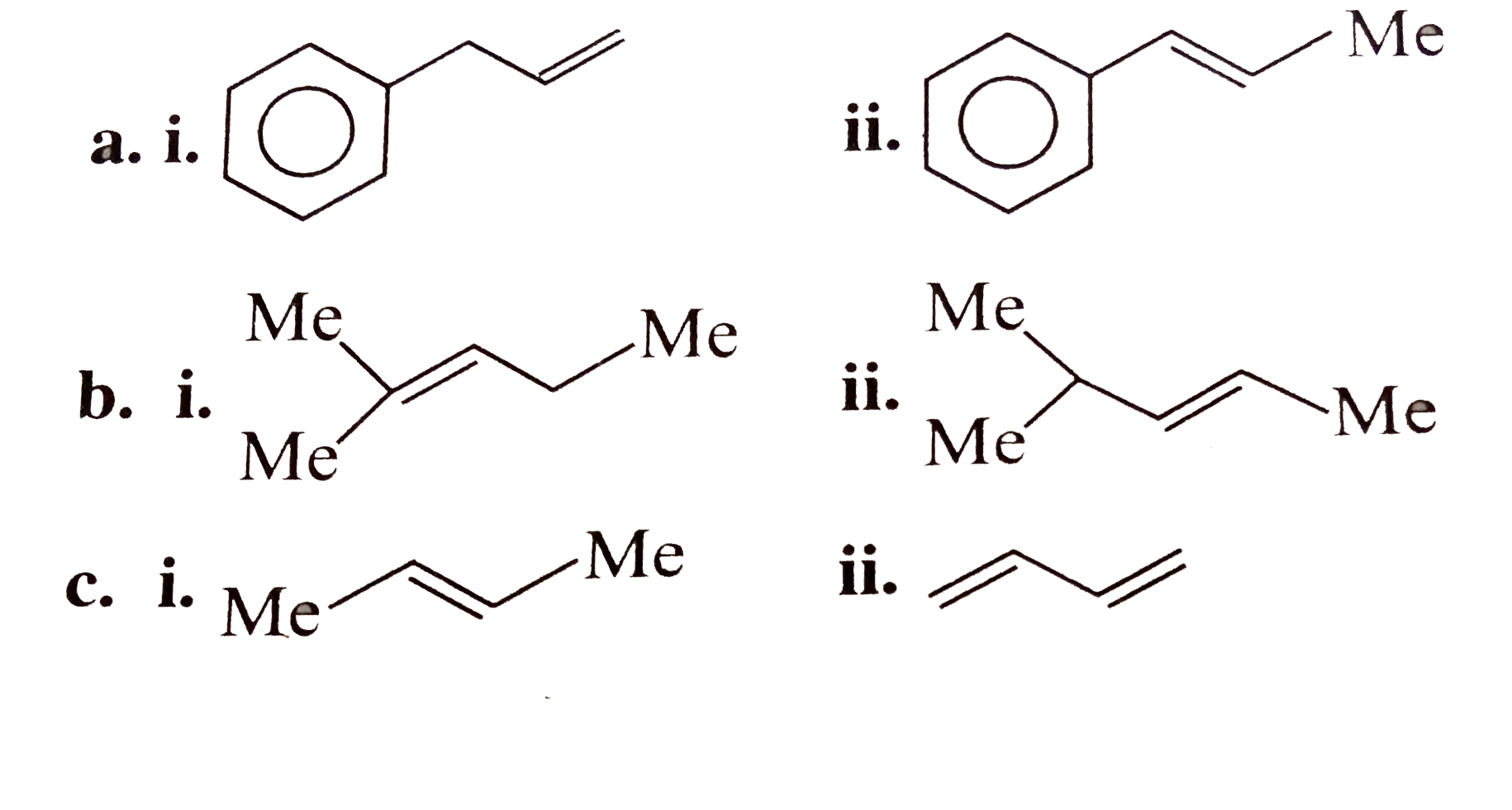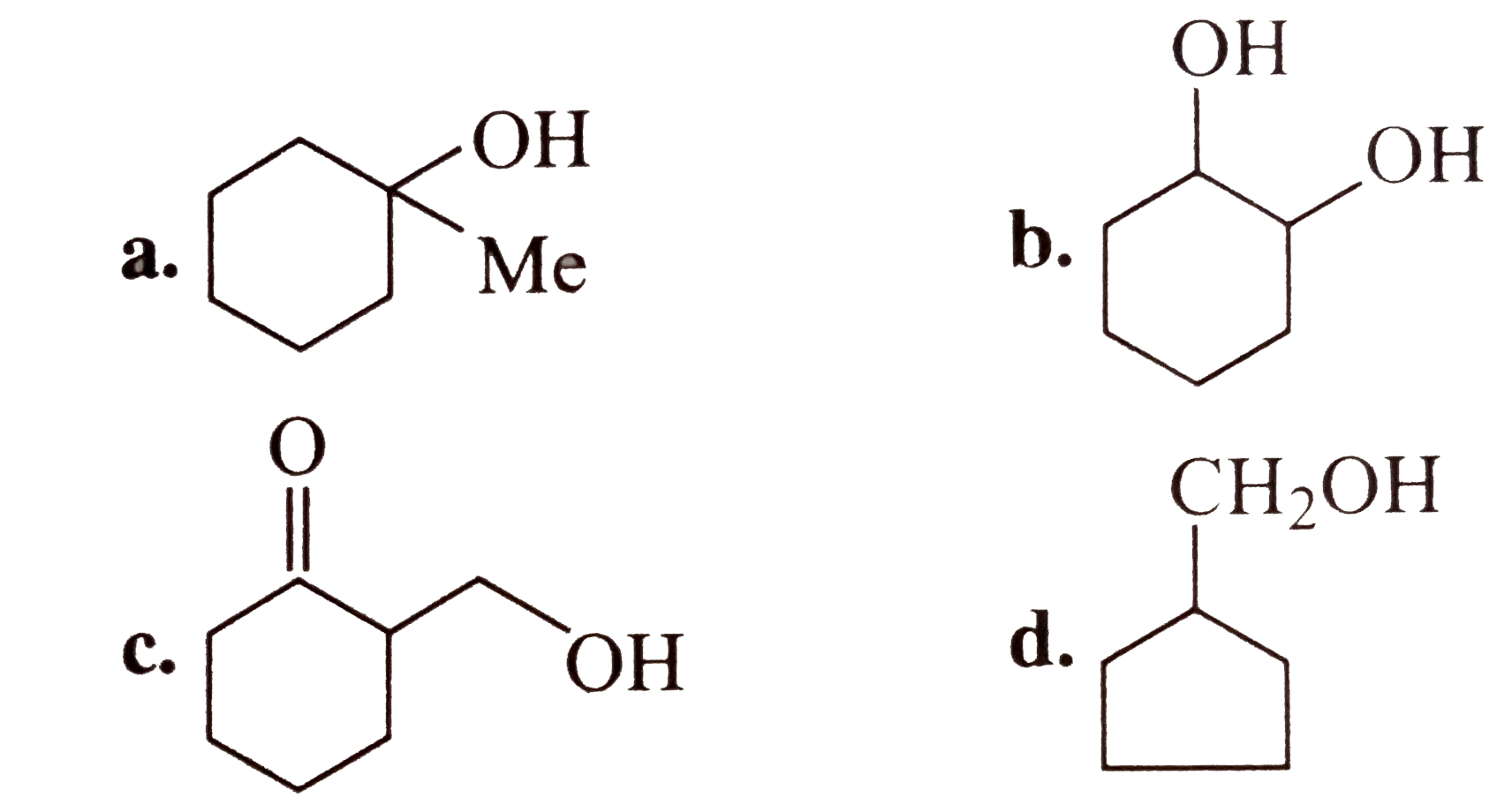Identify the catalyst in the hydration of alkenes to produce alcohols.
HCI
FeCl3
Pt
Ni
The correct Answer is:A
To identify the catalyst in the hydration of alkenes to produce alcohols, we can follow these steps:
1. Understanding Hydration of Alkenes:
- Hydration of alkenes refers to the addition of water (H₂O) across the double bond of the alkene to form alcohols.
2. Role of Catalyst:
- A catalyst is a substance that increases the rate of a chemical reaction without being consumed in the process. In the case of hydration of alkenes, a catalyst is necessary to facilitate the reaction.
3. Common Catalysts Used:
- The hydration of alkenes typically requires an acid as a catalyst. Common acids used include sulfuric acid (H₂SO₄) and hydrochloric acid (HCl).
4. Identifying the Correct Catalyst:
- Among the options provided, hydrochloric acid (HCl) is mentioned as the correct catalyst for the hydration of alkenes to produce alcohols.
5. Mechanism of Reaction:
- In the presence of HCl, the alkene reacts with water. The H⁺ ion from HCl helps to form a carbocation intermediate. This carbocation is then attacked by the water molecule (acting as a nucleophile), leading to the formation of an alcohol.
6. Conclusion:
- Therefore, the catalyst in the hydration of alkenes to produce alcohols is HCl.
Final Answer:
The catalyst in the hydration of alkenes to produce alcohols is HCl.
---
- Hydration of alkenes refers to the addition of water (H₂O) across the double bond of the alkene to form alcohols.
- A catalyst is a substance that increases the rate of a chemical reaction without being consumed in the process. In the case of hydration of alkenes, a catalyst is necessary to facilitate the reaction.
- The hydration of alkenes typically requires an acid as a catalyst. Common acids used include sulfuric acid (H₂SO₄) and hydrochloric acid (HCl).
- Among the options provided, hydrochloric acid (HCl) is mentioned as the correct catalyst for the hydration of alkenes to produce alcohols.
- In the presence of HCl, the alkene reacts with water. The H⁺ ion from HCl helps to form a carbocation intermediate. This carbocation is then attacked by the water molecule (acting as a nucleophile), leading to the formation of an alcohol.
- Therefore, the catalyst in the hydration of alkenes to produce alcohols is HCl.
The catalyst in the hydration of alkenes to produce alcohols is HCl.
Topper's Solved these Questions
Similar Questions
Knowledge Check
Complete the following statements by selecting the correct alternative from the choices given :
In the dehydration of alcohols to alkenes by heating with concentrated sulphuric acid, the initiation step is :Aformation of carbocationBformation of an esterCprotonation of alcohol moleculeDelimination of water
In acid catalysed hydration of alkenes, reaction intermediate formed is
View SolutionIdentify the correct order of steps in heterogeneous catalysis.
(i) Adsorption of reactant molecules on the surface of the catalyst.
(ii) Diffusion of reactant to the surface of the catalyst.
(iii) Formation of reactions product on the catalyst surface.
(iv) Diffusion of reactions product from the catalyst surface.
(v) Formation of activated intermediate.
View SolutionWilkinson's catalyst, unsed as a catalyst in the hydrogenation of alkene is__________and is an example of ______catalysis .
View Solutionthe red coloured Wilkinson's catalyst, [RhCl(PPh3)3] is a homogenous catalyst used hydrogenation of alkenes. Which of the following is/are correct about is?
View SolutionExplain the mechanism of acid catalysed of an alkene to form corresponding alcohol.
View SolutionThe catalyst used in the preparation of an alkyl chloride by the action of dry HCl on an alcohol is
View SolutionWhich one is more reactive towards acidcatalysed hydration ? Predict the stereochemical alcohols formed form the compound.
 .
.
View Solution

